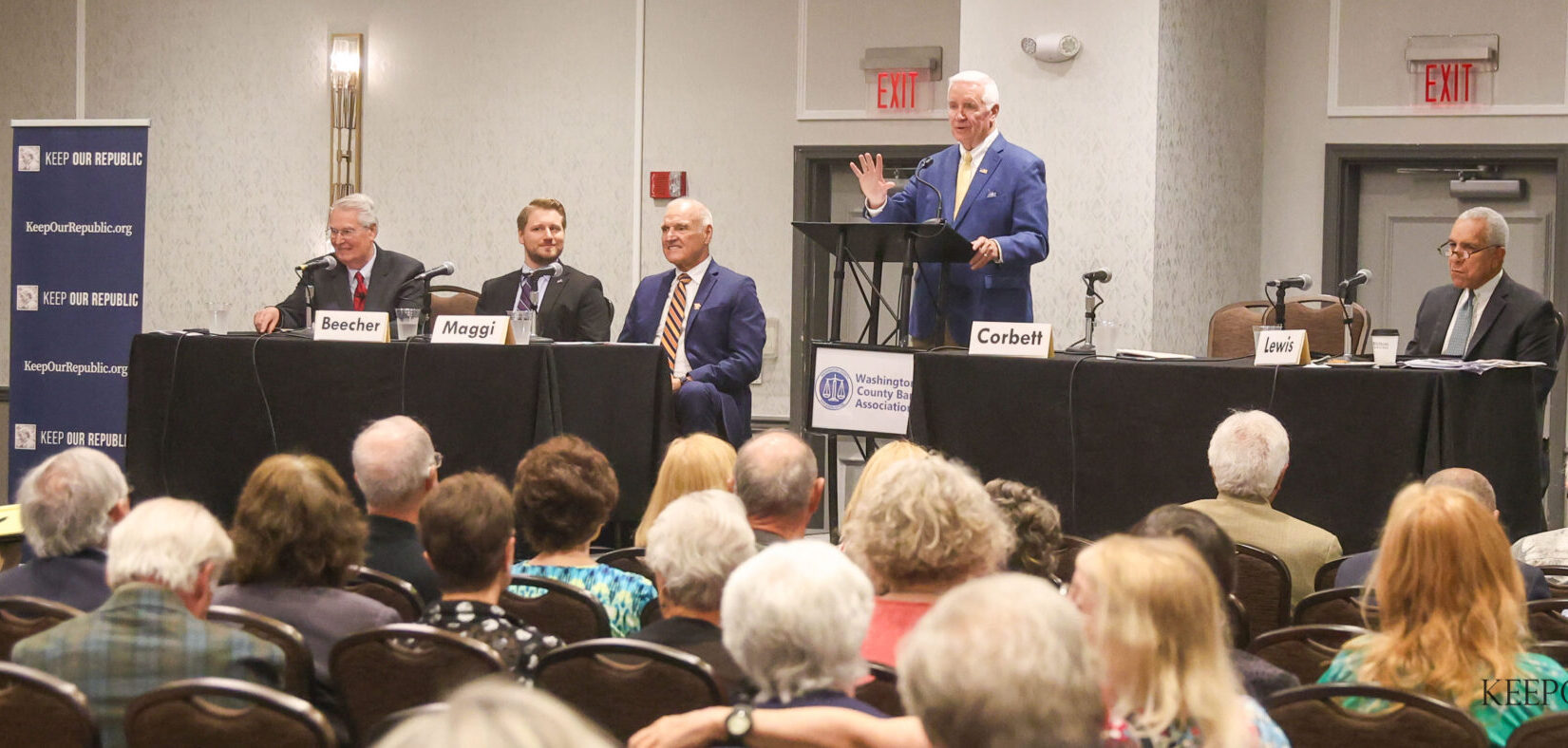Bipartisan panel discusses election integrity, voter education in Washington Co.
Sherman, Janis back out of at last minute from ‘Keep Our Republic’ event
May 15, 2024 | Mike Jones | Observer-Reporter
A bipartisan panel spoke Tuesday night about the importance of voter education and election integrity during a roundtable discussion with several current and former public officials at all governmental levels participating, with two notable exceptions.
Washington County Commissioners Nick Sherman and Electra Janis backed out at the last minute from the “Keep Our Republic” discussion that attracted scores of people to the Hilton Garden Inn ballroom at Southpointe, leaving only Commissioner Larry Maggi to answer questions on behalf of the county.
The panel’s organizers were notified by county solicitor Gary Sweat less than five hours before the discussion began that Sherman, Janis and elections Director Melanie Ostrander would not be participating over concerns about ballot curing questions with a potential lawsuit against the county looming. …


